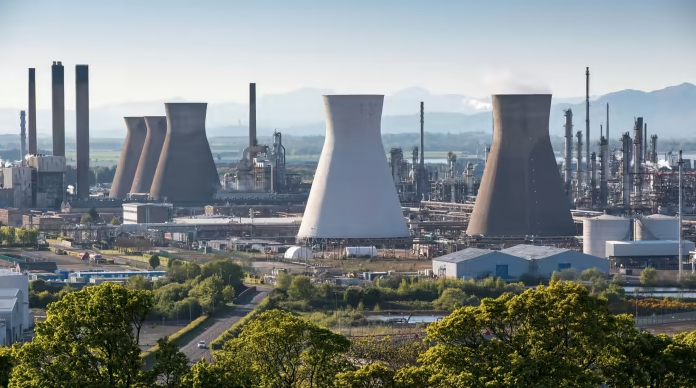Fears for oil giant Grangemouth as Chinese backer considers exit

Fears are growing for the future of one of the UK’s six remaining oil refineries as its Chinese backer prepares to appoint restructuring advisers following several years of mounting losses.
Grangemouth in Falkirk, which processes 150,000 barrels of crude oil a day and employs more than 600 people, is part-owned by PetroChina, a state energy giant based in Beijing. PetroChina bought a 50 per cent stake in 2011 from Sir Jim Ratcliffe’s Ineos Group, which in turn acquired Grangemouth in 2005 as part of a portfolio of assets from BP.
Under the terms of the 2011 joint venture, PetroChina is understood to be responsible for most of Grangemouth’s financing requirements. The Chinese company is said to have become increasingly frustrated by the burden. Pre-tax losses at Petroineos Manufacturing Scotland, the subsidiary that owns the refinery, rose from £2.2 million in 2018 to £26.1 million in 2019 and £89.9 million in 2020 as fuel demand fell during Covid.
The 2019 accounts said that profit margins from refining were “lower than expected and the company did not meet its overall financial target”. In November 2020, Grangemouth scaled back its processing capacity from 210,000 barrels a day to 150,000. It took a £44.7 million impairment charge against equipment as a result, and booked £2.5 million of provisions for redundancies.
PetroChina is understood to be close to hiring restructuring experts to advise on its options. The Chinese group appears to have given conflicting messages to various parties, with the Department for Business under the impression that Grangemouth has benefited from the spike in fuel prices following Russia’s invasion of Ukraine and Ineos told that PetroChina wants to stay as an investor. However, PetroChina’s representatives are understood to have told City sources that it wants to sell out of Grangemouth.
One source familiar with the situation said the process was “unlikely to be solvent”. It is understood that Ineos would not be interested in buying PetroChina’s stake, raising questions over whether it might need a government bailout or support were it to go into administration.
Grangemouth is of strategic importance to Scotland and the UK. Instability would pose a headache for the Scottish and British governments after concerns over the financial health of the Stanlow refinery in Ellesmere Port last year. There are six refineries left in the UK. The others are Fawley in Hampshire, Lindsey in Lincolnshire, Humber in North Lincolnshire and Pembroke in Wales.
Grangemouth supplies jet fuel to Scotland’s airports, as well as two-thirds of the petrol and diesel for forecourts in Scotland, plus significant volumes in Northern Ireland and the north of England. The complex includes a petrochemicals business and a connection to the Forties Pipeline, which brings almost 40 per cent of the UK’s North Sea oil and gas ashore. The site employs about 2,000 people. The petrochemicals business and the Forties Pipeline are owned separately to the oil refinery.








